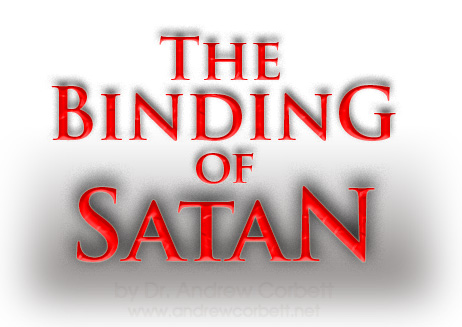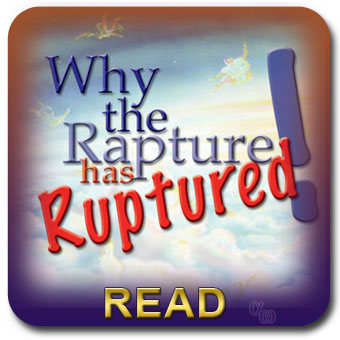by Andrew Corbett | Jun 11, 2023 | Eschatology |
In Professor Stuart Piggin’s seminal work on the Evangelical history of Australia, The Fountain of Public Prosperity, he argues that it was the rise of ‘pre-millennialism’ eschatology that gave much impetus to the Evangelicals successful evangelism. Evangelical evangelists of the mid-1800’s were preaching that Christ’s return – and the end of the world – was imminent. But their pre-millennial gospel was also ‘pre-tribulational’ – which meant that the urgency to turn to Christ in repentance was even more urgent, otherwise Christ’s “secret return” (‘the rapture’) could leave the unrepentant in the midst of a hell-on-earth “Great Tribulation”. This new evangelistic message gained much traction and many converts. It would be a popular evangelistic message up until the latter part of the twentieth century. Pragmatically, it was a popular because it worked! But like many (unexamined) good ideas, it has had unintended negative consequences.

by Andrew Corbett | Dec 27, 2020 | Eschatology |
Much of what is taught by Bible-prophecy teachers about the end-times” is grounded in Paul’s two epistles to the Thessalonians. It is claimed that in First Thessalonians, Paul introduced the notion of a rapture. And it is believed that from Second Thessalonians, he introduces believers to some revelations about the “Antichrist”. The Apostle certainly does share some divinely inspired insights into what was future to his original audience. But the modern reader may not understand how future it was to these Thessalonians – which may mean that it is not future to us.

by Andrew Corbett | Jun 25, 2018 | Hermeneutics |
Professors Gordon Fee and Douglas Stuart state that the entire framework of the New Testament is eschatological (How To Read The Bible For All Its Worth, 2003:145). “Eschatology”, they write, “has to do with the end, when God brings this age to its close.” Hence my double entendre heading – Understanding what the Bible teaches about “finally” (Eschatology) is necessary in order to understand what the New Testament teaches…

by Andrew Corbett | Mar 3, 2018 | Eschatology |
The End. That’s what the Greek word “eschaton” means. But a question that some are now asking is, “The end of what?” Up until recently most Christians would have said- the world, but now good Biblical scholarship is shedding greater light upon this highly controversial word and revealing that most of us may have been wrong!
When I went to church as a young boy, ‘End Times’ teaching was all the rage. Afterall, there were wars in the Middle East, famines in Africa, natural disasters in Asia, and economic struggles in Europe and America. There were conspiracy theories, global uncertainty, a worldwide fuel crisis, and the emerging cashless society. All of these things were apparently predicted in the Bible many thousands of years ago as being the last signs before the end of the world. As the last three decades have unfolded however, it has become obvious that none of these things have led to the end of the world, and now most people realise that the Bible doesn’t even make reference to them – let alone pinning the triggers for the end of the world upon them! With so much error in this speculation it’s little wonder that many Christians have put eschatology (the study of ‘final things’) either in the too-hard basket or now regard it as not worth worrying about because nobody knows anyway.

by Andrew Corbett | Jul 11, 2017 | Bible Prophecy |
Recently, one of the world’s most listened to Bible teachers received a question from a listener about Christ’s failure to return “soon”. It’s actually a great question and is frequently responded to with answers from most popular Bible teachers that actually portrays the Bible as nonsensical! How this question is answered depends on the method we use to interpret any Scripture passage. Yet, using the principles of sound Bible interpretation is the very reason why such Bible prophecies about Christ’s “soon” return are a problem for the thoughtful Bible reader.

by Andrew Corbett | May 5, 2017 | Book of Revelation |
I’m a ‘Pentecostal’ Preterist. To be more precise I’m a Pentecostal Partial Preterist. If you’re wondering what on earth does any of that mean? It means I wake up every morning to start my day living for Jesus, rather than againstSatan. I don’t have to bind Satan to get over difficulties or to make it through life. Let me explain further…

by Andrew Corbett | May 4, 2016 | Bible Prophecy |
Many believers have come to believe in a ‘rapture’ and that it is prophesied in the Bible without realising that it is only a fairly recent idea! When we look at the teaching of some of these Bible-Prophecy preachers it soon becomes apparent that the Bible does not teach a rapture!

by Andrew Corbett | Feb 27, 2016 | Theology, Topical |
How should Christians regard the Fourth Commandment of the Ten Commandments — about the Sabbath?








